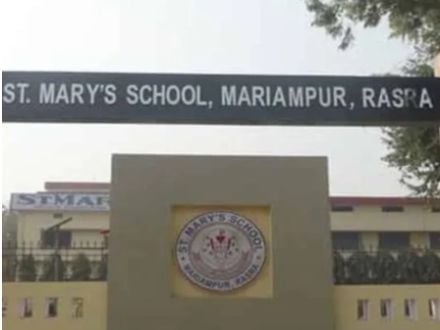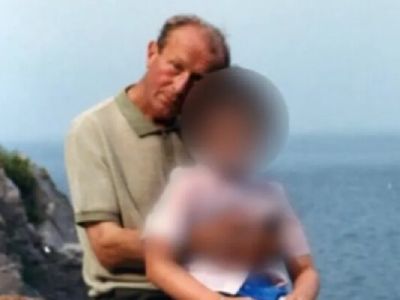Chaitra Krushna Trutiya, Kaliyug Varsha 5112
By NICOLE WINFIELD, Associated Press Writer
Vatican City: Dragged deeper than ever into the clerical sex abuse scandal, the Vatican is launching a legal defense that it hopes will shield the pope from a lawsuit in Kentucky seeking to have him answer attorneys’ questions under oath.
Court documents obtained Tuesday by The Associated Press show that Vatican lawyers plan to argue that the pope has immunity as head of state, that American bishops who oversaw abusive priests weren’t employees of the Vatican, and that a 1962 document is not the "smoking gun" that provides proof of a cover-up.
The Holy See is trying to fend off the first U.S. case to reach the stage of determining whether victims actually have a claim against the Vatican itself for negligence for allegedly failing to alert police or the public about Roman Catholic priests who molested children.
The case was filed in 2004 in Kentucky by three men who claim they were abused by priests and claim negligence by the Vatican. Their attorney, William McMurry, is seeking class-action status for the case, saying there are thousands of victims across the country.
"This case is the only case that has been ever been filed against the Vatican which has as its sole objective to hold the Vatican accountable for all the priest sex abuse ever committed in this country," he said in a phone interview. "There is no other defendant. There’s no bishop, no priest."
The Vatican is seeking to dismiss the suit before Benedict XVI can be questioned or documents subpoenaed.
The preview of the legal defense was submitted last month in U.S. District Court in Louisville. The Vatican’s strategy is to be formally filed in the coming weeks. Vatican officials declined to comment on Tuesday.
Plaintiffs in the Kentucky suit argue that U.S. diocesan bishops were employees of the Holy See, and that Rome was therefore responsible for their alleged wrongdoing in failing to report abuse.
They say a 1962 Vatican document mandated that bishops not report sex abuse cases to police. The Vatican has argued that there is nothing in the document that precluded bishops from calling police.
With the U.S. scandal reinvigorated by reports of abuse in Europe and scrutiny of Benedict’s handling of abuse cases when he was archbishop of Munich, the Kentucky case and another in Oregon have taken on greater significance. Lawyers as far away as Australia have said they plan to use similar strategies.
At the same time though, the hurdles remain enormously high to force a foreign government to turn over confidential documents, let alone to subject a head of state to questioning by U.S. lawyers, experts say.
The United States considers the Vatican a sovereign state — the two have had diplomatic relations since 1984. In 2007, U.S. District Court Judge John Heyburnrejected an initial request by the plaintiffs to depose Benedict.
"They will not be able to depose the pope," said Joseph Dellapenna, a professor at Villanova University Law School an author of "Suing Foreign Governments and their Corporations."
"But lower level officials could very well be deposed and there could be subpoenas for documents as part of discovery," he said.
McMurry last week filed a new court motion seeking to depose the pope; Cardinal Tarcisio Bertone, currently Vatican secretary of state but for years the pope’s deputy at the Congregation for the Doctrine of the Faith; Cardinal William Levada, an American who currently heads the Congregation; and Archbishop Pietro Sambi, the Vatican’s representative in the U.S.
On Tuesday, McMurry filed a memorandum in support of his demand to question Benedict based on court documents unearthed last week detailing the role of the Congregation in shutting down a canonical trial for a Wisconsin priest who allegedly molested up to 200 deaf boys.
"These documents confirm that the CDF, under Pope Benedict XVI’s lead, discouraged prosecution of accused clergy and encouraged secrecy to protect the reputation of the church," wrote McMurry, who represented 243 sex abuse victims that settled with the Archdiocese of Louisville in 2003 for $25.3 million.
Jeffrey Lena, the reclusive architect of the Vatican’s legal strategy in the U.S., is seeking to have the court rule on the Vatican’s other defenses before allowing the pope to be deposed, in hopes that the suit will be dismissed. In his filing, Lena noted that the U.S. Supreme Court has held that when a defendant enjoys immunity, a court shouldn’t allow a "discovery fishing expedition on claims that are baseless or speculative."
Lena also has argued that the pope’s deposition would violate the Vatican’s own laws on confidentiality, and would set a bad precedent for U.S. officials.
"If Pope Benedict XVI is ordered to testify by a U.S. court, foreign courts could feel empowered to order discovery against the president of the United States regarding, for example, such issues as CIA renditions," Lena wrote in a 2008 brief.
McMurry is eager to find out what the Vatican knew and did, in particular, about Rev. Louis Miller, who was removed from the priesthood in 2004 by the late Pope John Paul II. Miller pleaded guilty in 2003 to sexually abusing one of the plaintiffs in the Kentucky lawsuit and other children in the 1970s. He is serving a 13-year prison sentence.
In a deposition transcription obtained by The Associated Press, Miller said he had offered to resign as early as 1962 to his then-Archbishop John Floersh, and that two subsequent archbishops knew of his crimes but continued to keep him as a priest, moving him from parish to parish.
In explaining why he wanted to resign, Miller said: "I just knew that the crime was so horrendous in my own mind that I didn’t feel that I was worthy to remain a priest."
But he said Floersh was "compassionate," kept him on, and told him, "You will always be a good priest."
Plaintiffs in the Kentucky suit contend that bishops are employees of the Vatican. That point is crucial to determing whether the Holy See can be held responsible for their behavior.
There’s a general consensus among legal scholars that an employee is someone who works for the employer, who controls the details of the work. Attorneys for the Vatican are expected to argue that diocesan bishops do not work for the pope, and that the Holy See does not exercise the day-to-day control over their work necessary to create an employment relationship.
Also crucial to the Kentucky lawsuit is the 1962 document "Crimen Sollicitationis" — Latin for "crimes of solicitation." It describes how church authorities should deal procedurally with cases of abuse of children by priests, cases where sex is solicited in the confessional — a particularly heinous crime under canon law — and cases of homosexuality and bestiality.
McMurry argues that the document imposed the highest level of secrecy on such matters and reflected a Vatican policy barring bishops from reporting abuse to police.
Lena declined to comment Tuesday, but he has tried to shoot down McMurry’s theory by arguing that McMurry’s own expert witness, canon lawyer Thomas P. Doyle, has rejected theories that Crimen was proof of a cover-up.
The plaintiffs, Lena wrote in a 2008 motion, "fail to offer any facts in support of their theory that Crimen caused their injuries, nor indeed any facts that Crimen was ever in the possession of the Louisville archdiocese or used in Kentucky."
McMurry insisted Tuesday that Crimen is a smoking gun.
"The fact is, this document and its predecessors make it an excommunicable offense to reveal any knowledge of allegations that a priest has sexually abused," he said in an e-mail.
The existence of Crimen did not become publicly known until 2003, when a lawyer noticed a reference to the document while reading a 2001 letter written by Benedict, then Cardinal Joseph Ratzinger. McMurry is seeking to subpoena Ratzinger’s letter, which instructed all bishops to send cases of clerical sex abuse to him and to keep the proceedings secret.
In 2008, the 6th U.S. Circuit Court of Appeals gave the go-ahead for Kentucky lawsuit to continue, ruling that an exception to sovereign immunity, which shields most foreign governments from U.S. lawsuits, should be applied.
The 6th Circuit eliminated most of the plaintiffs claims’ in its late 2008 ruling before returning it to district court.
(This version CORRECTS SUBS graf 21, to correct that reference is to one of the plaintiffs, sted defendants in the Kentucky lawsuit.)
Source: Yahoo
Also See
 |
Dharma Jagruti SabhasDhama Jagruti Sabhas is creating mass awareness among Hindus about various problems affecting Hindu Dharma. |
 |
Save temples from Anti-Hindus
Temples are the centres of Hindu Dharma. Anti Hindu forces like Muslims, Congress, Christians has constantly targetted them. HJS is fighting against these forces. |




